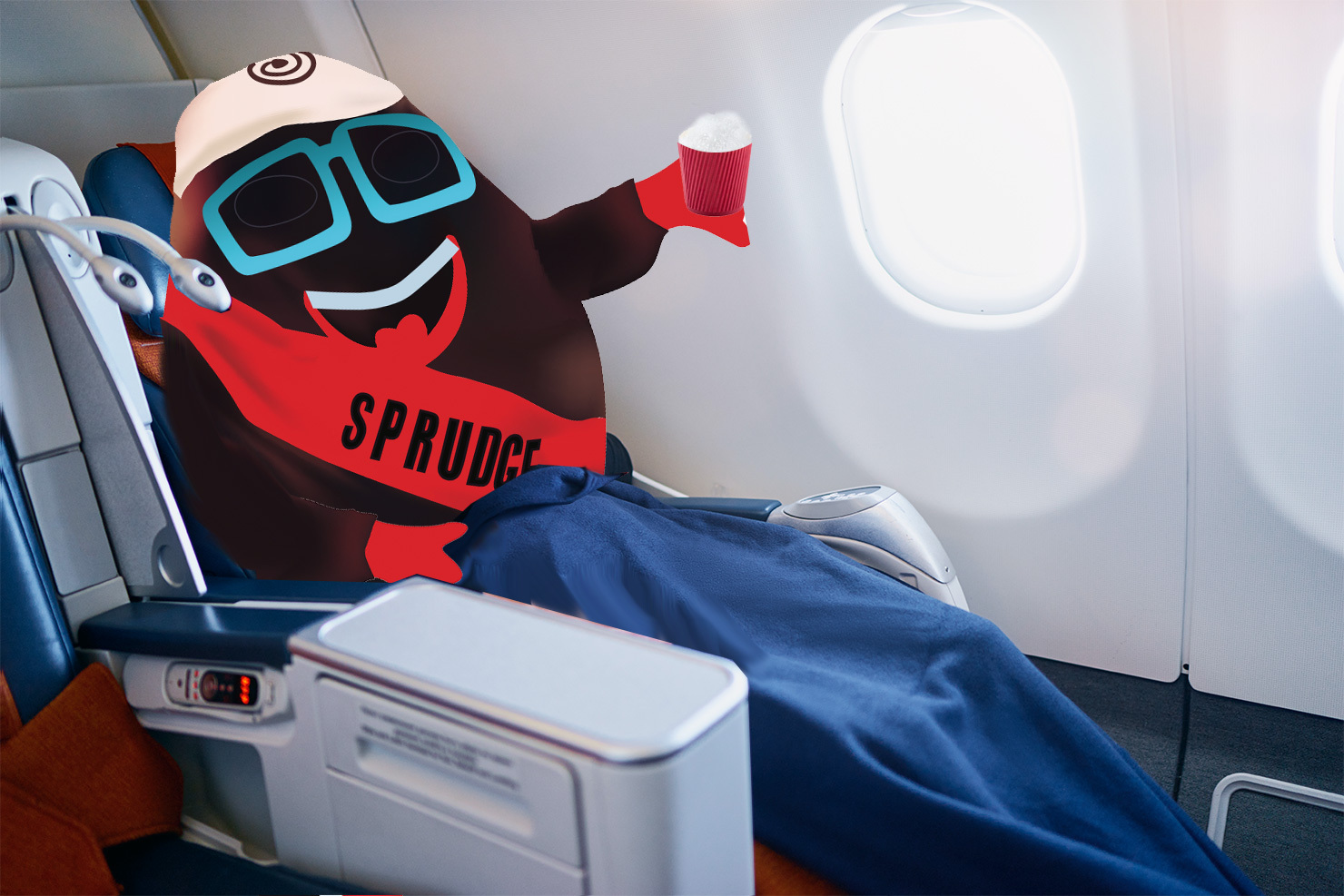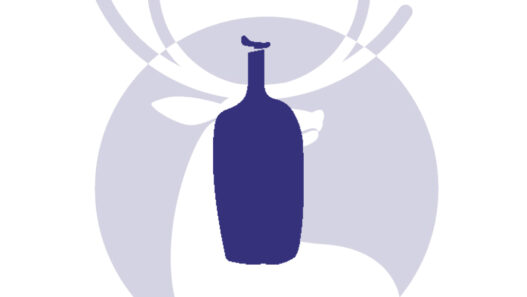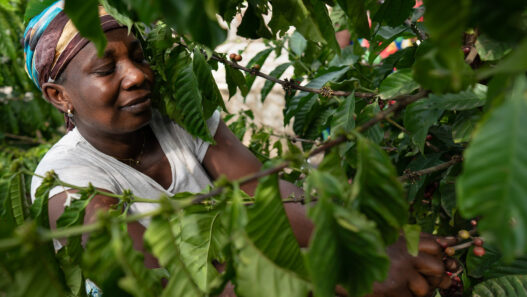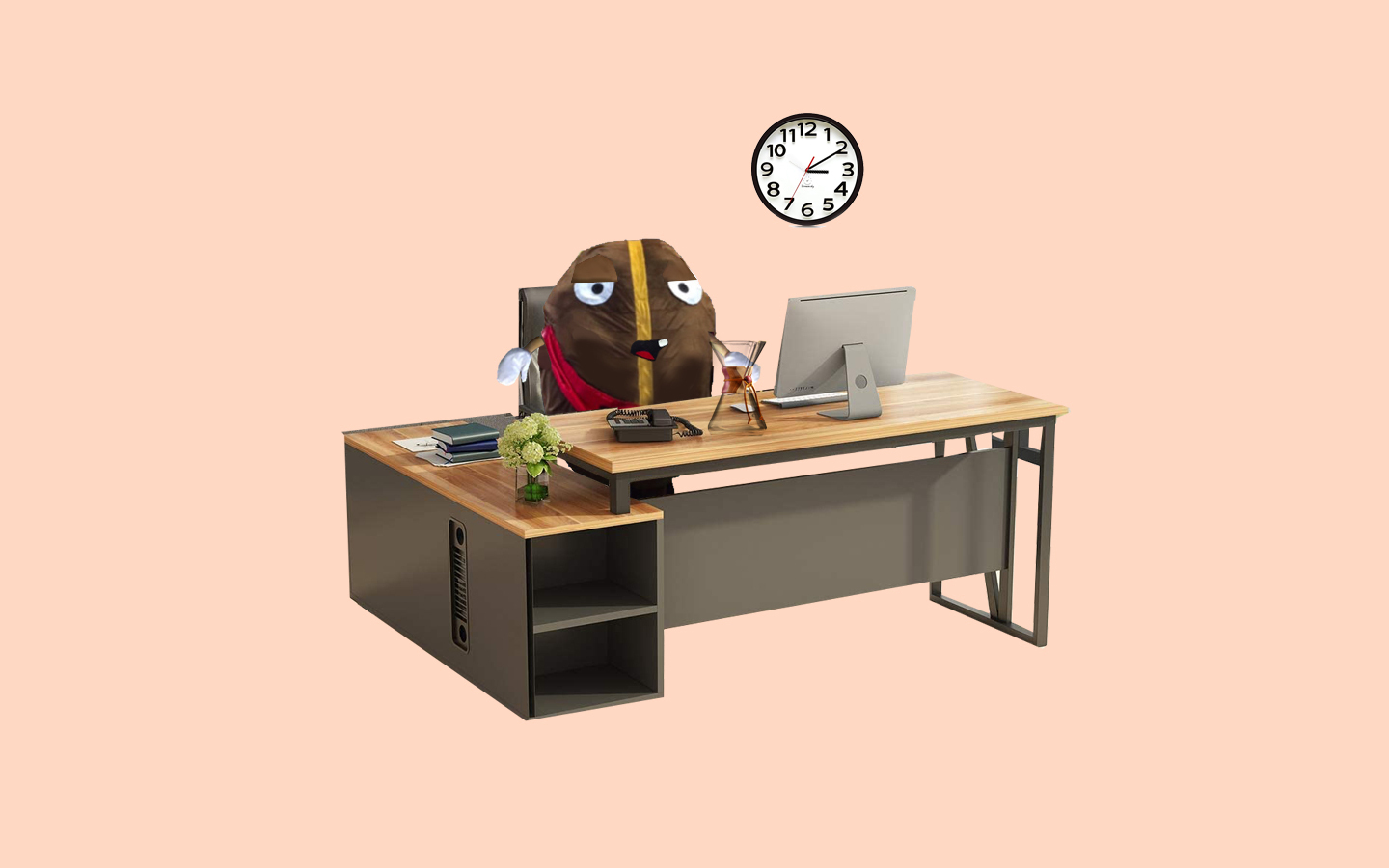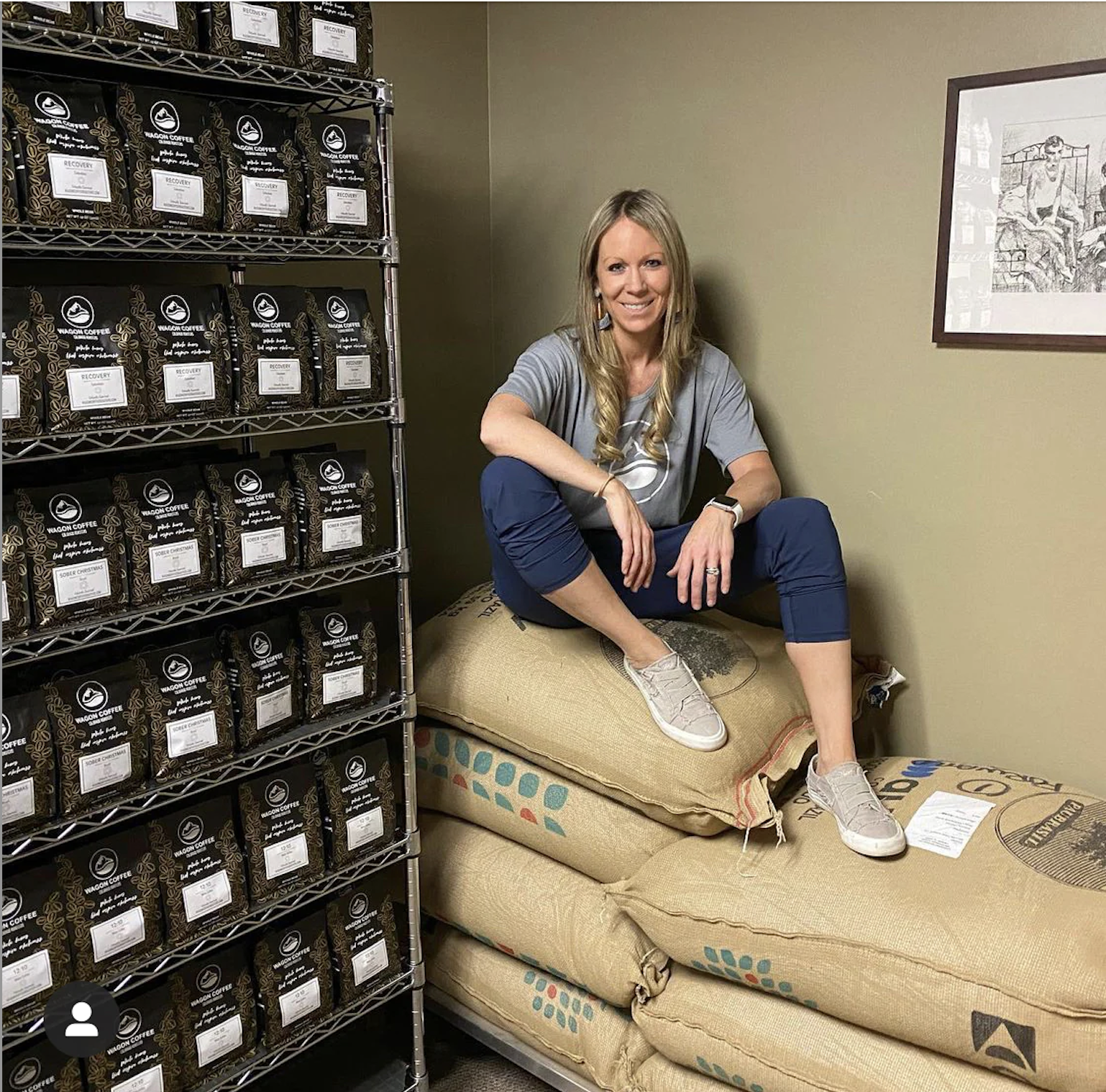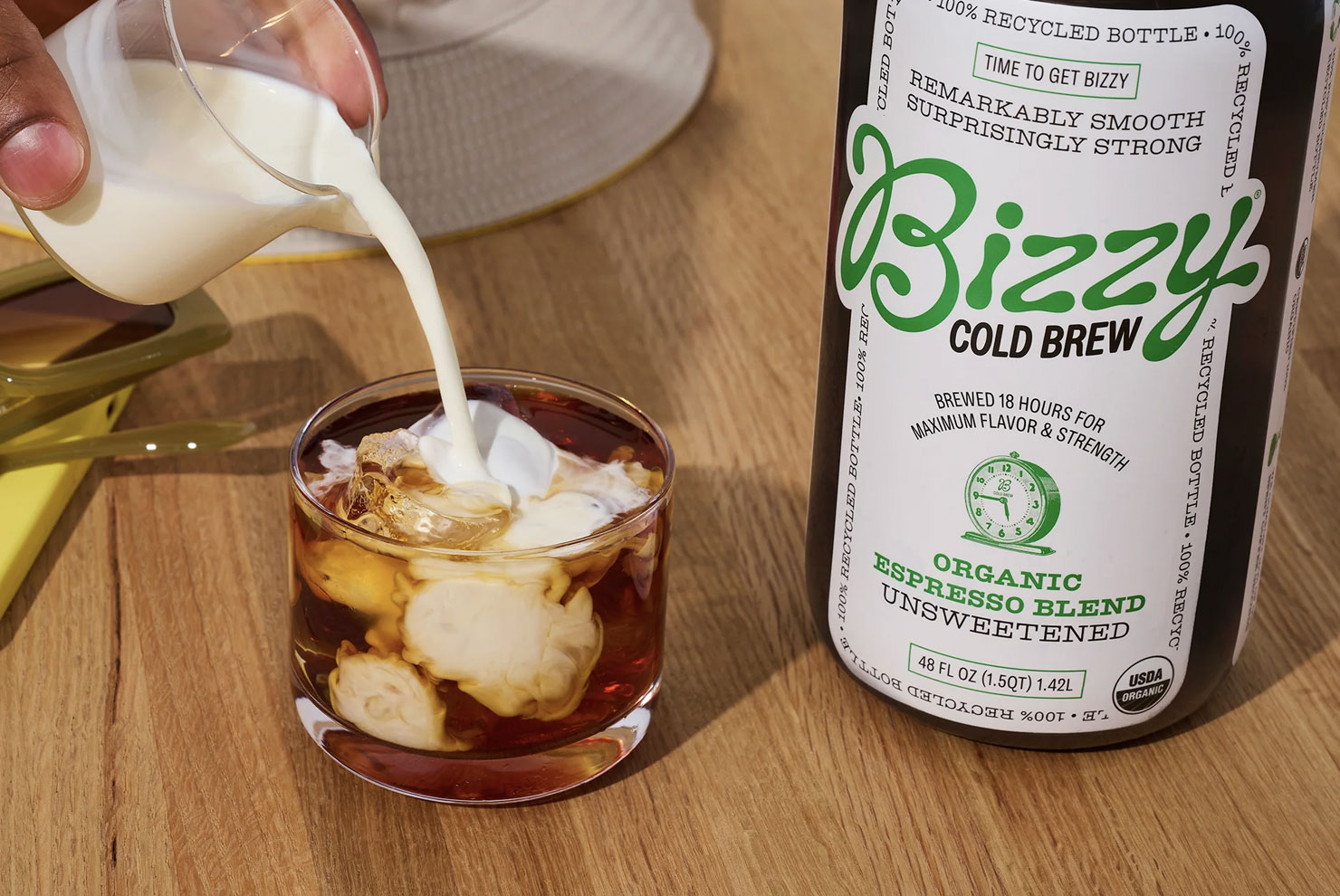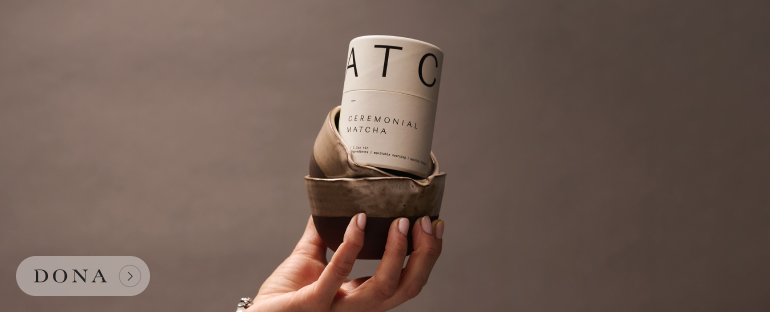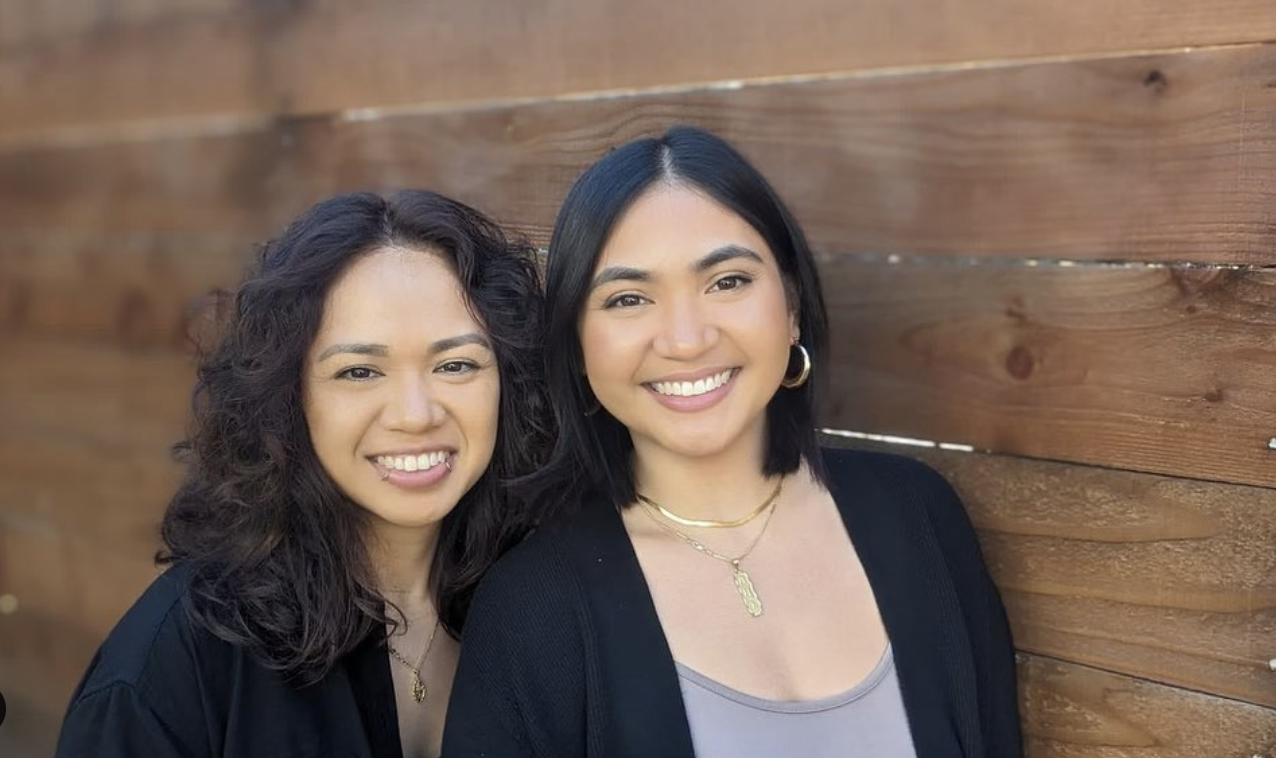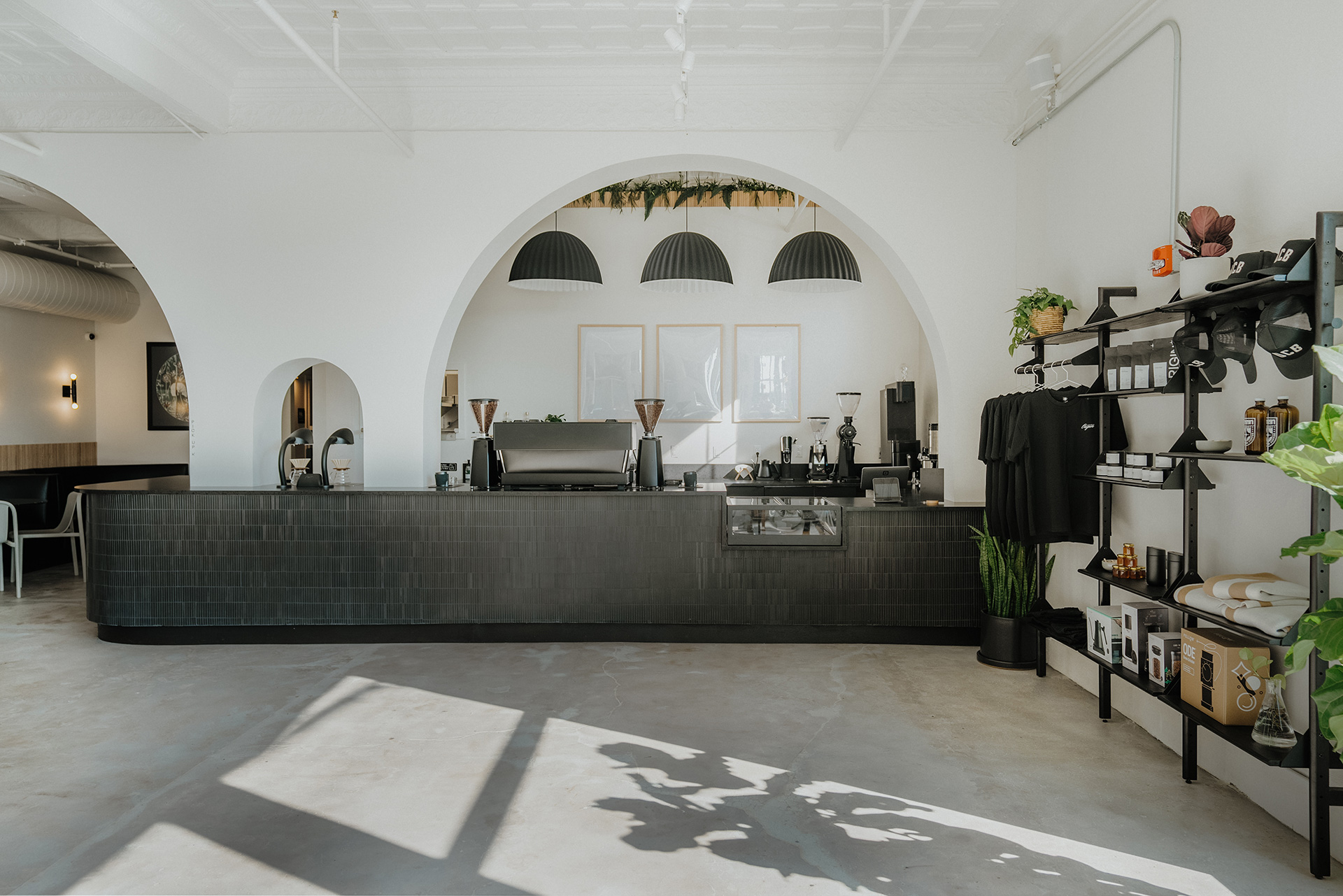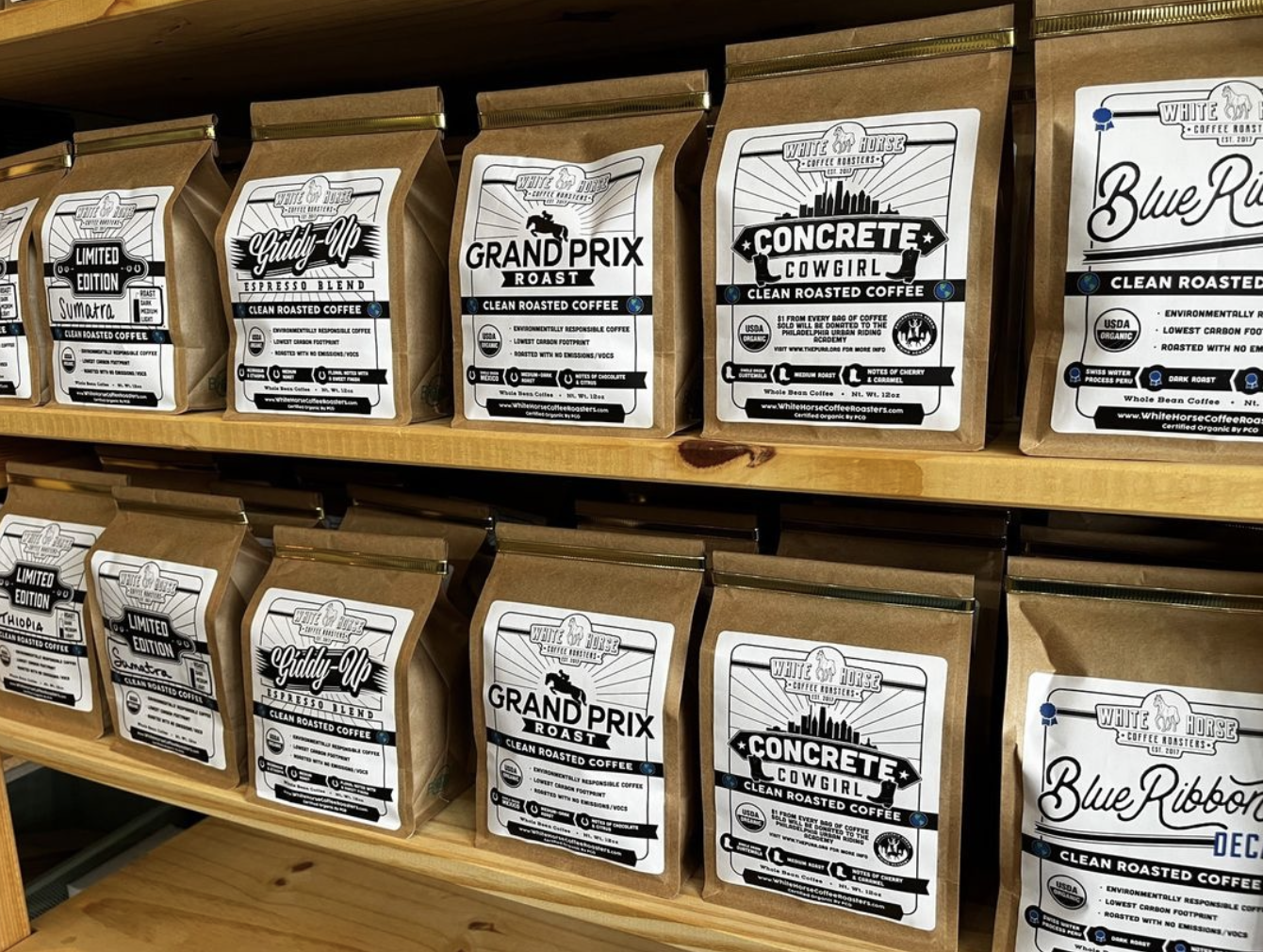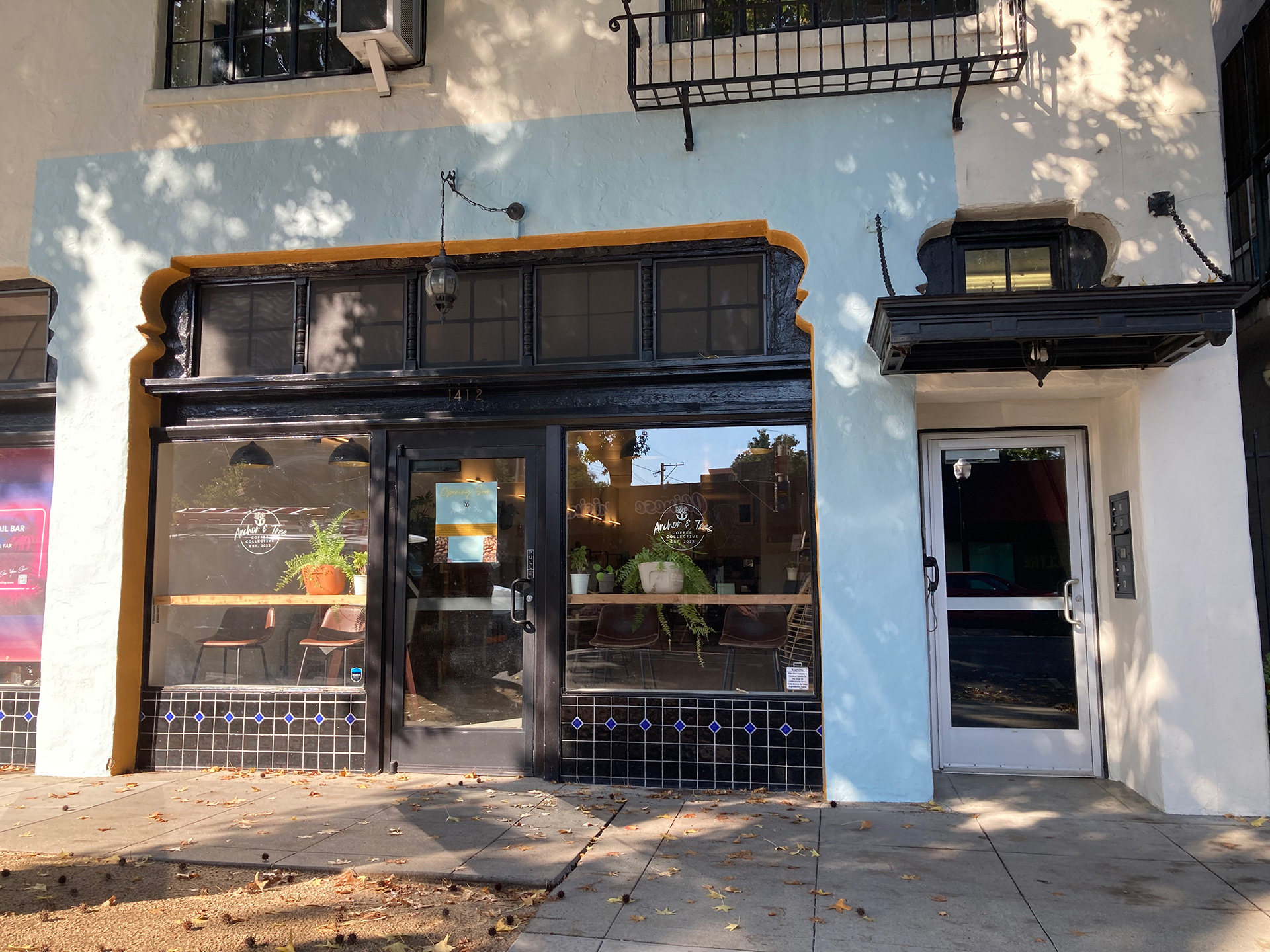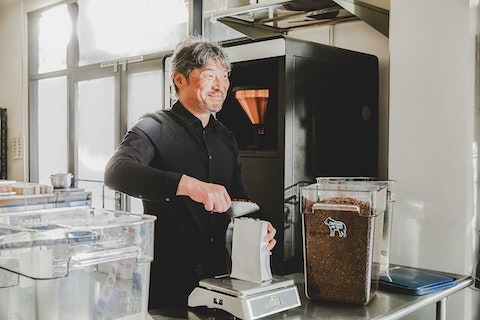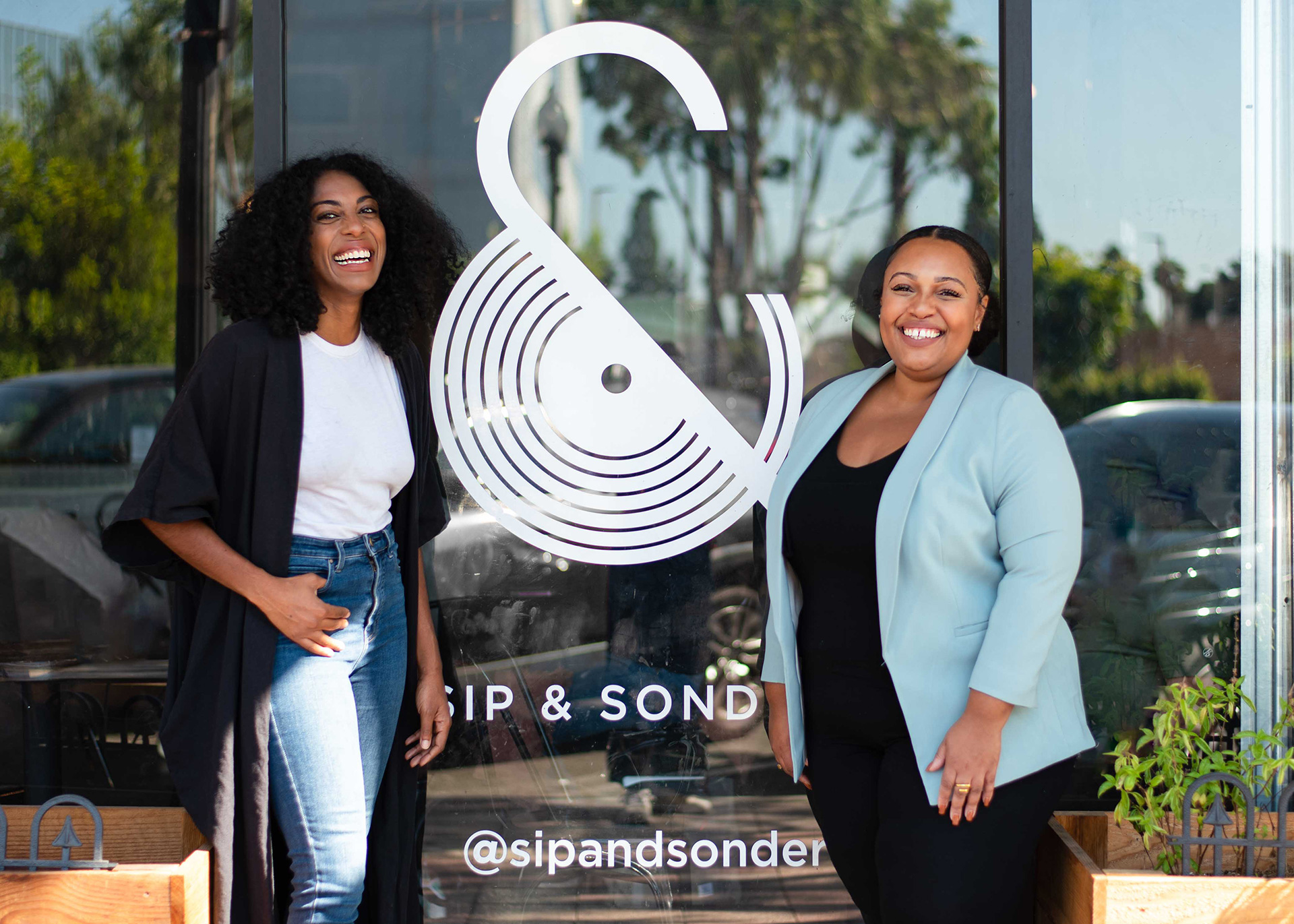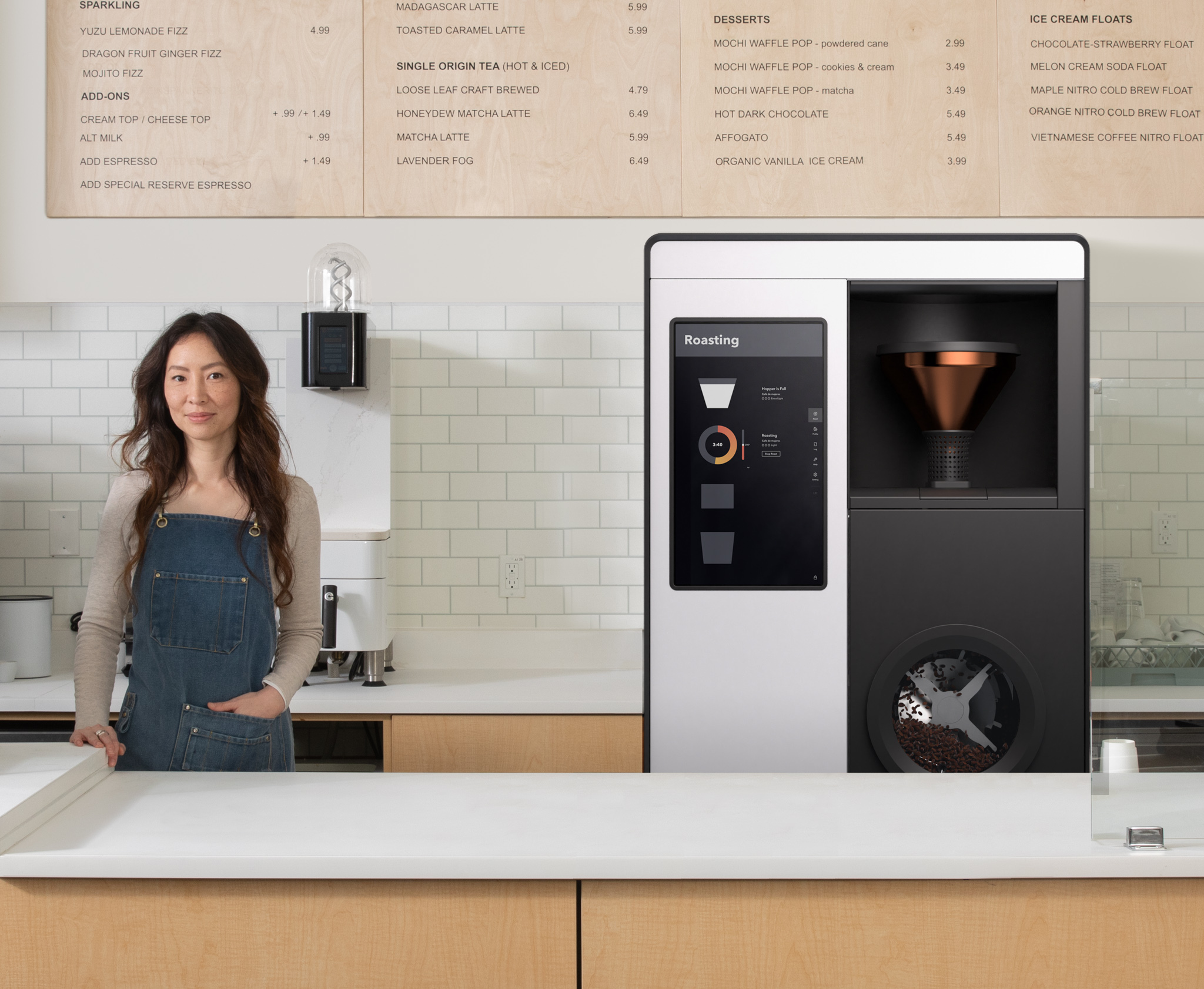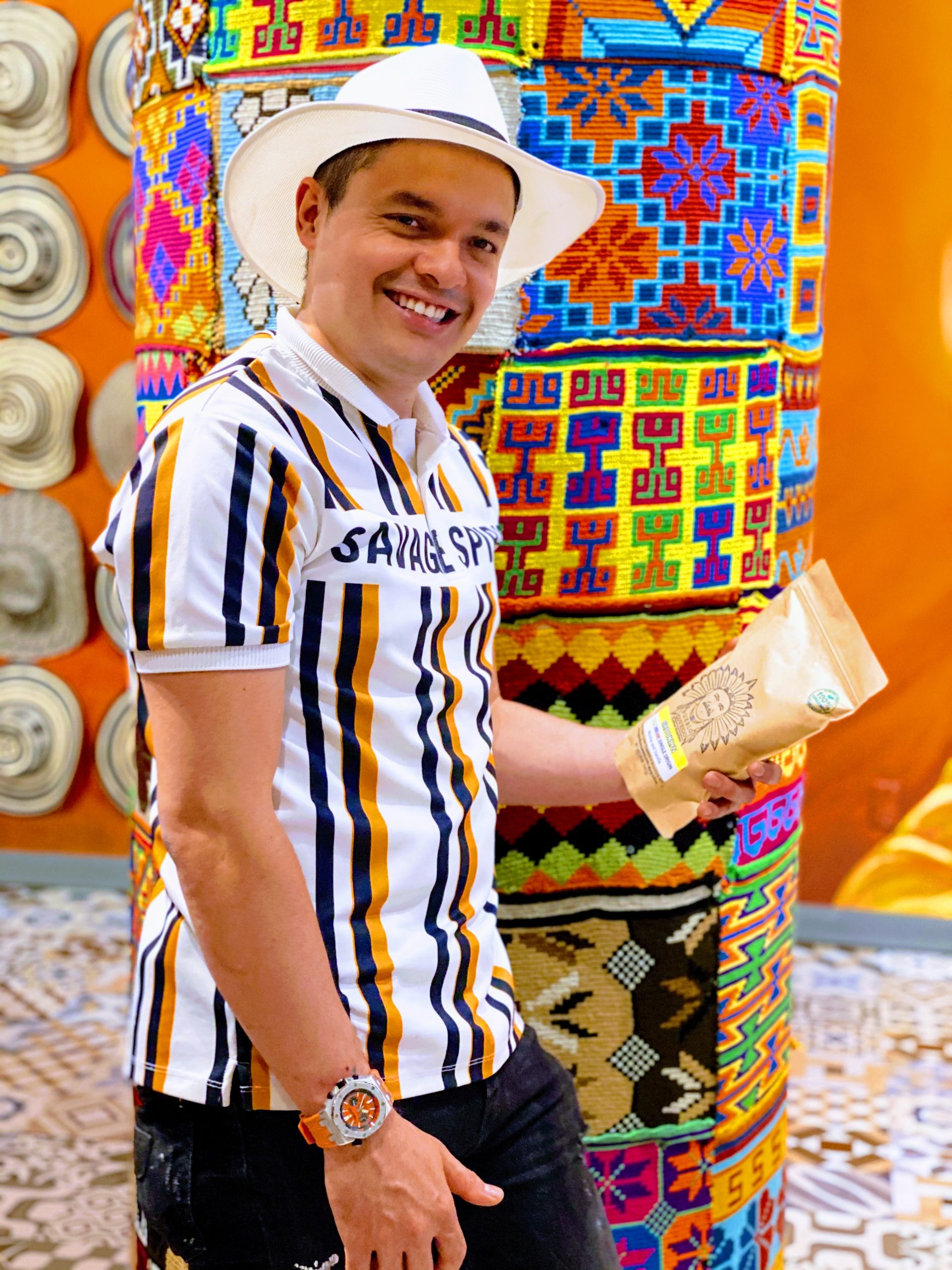Coffee never loses its capacity to surprise me. We’ve published Sprudge for 14 years as of this month, but in all the time I’ve never had the privilege to tell a story quite like this one. It comes courtesy of Tami Canaday and Denver’s Wagon Coffee Roasters, whose work centers and prioritizes sobriety and addiction recovery.
Tami and her husband Ryan Canaday are the founders of FREE, which describes itself as “a spiritual community for addicts and loved ones of addicts.” Wagon Coffee functions as an integral part of the wider mission at FREE. They roast their own coffee on a Bellwether, teach coffee skills to members of their recovery community, and operate a coffee bar, the Free Cafe, to serve these roasts and build additional skills. Put it all together and there’s a kind of ecosystem of recovery and coffee, working in harmony.
It was an absolute pleasure to speak with Tami Canaday for the latest entry in our Roaster Spotlight feature series, in partnership with Bellwether. Her story is inspiring and speaks to the bigger power of coffee in modern life today.
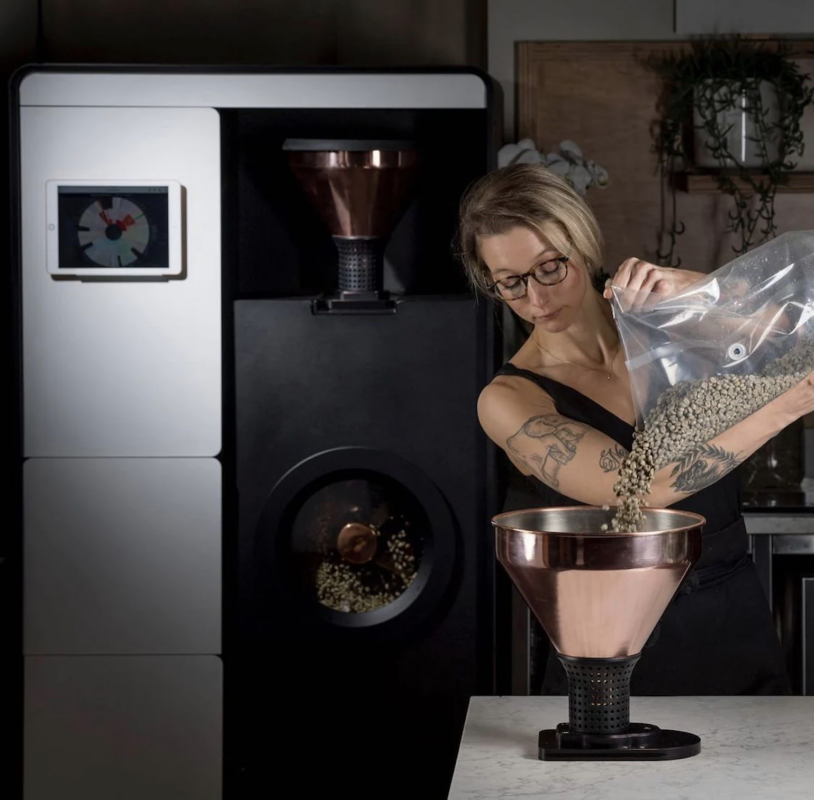
This interview has been gently edited and condensed.
Tell us a little more about the story of Wagon Coffee Roasters — how and when did you get started? What is your background in coffee?
I’m Tami Canaday, Owner/Founder of Wagon Coffee. I identify as a Recovery Advocate and Loved One of an Addict. My husband, Ryan, is 10+ years sober. I’ve witnessed the beautiful transformation of recovery through him, myself, and our marriage. In 2018, Ryan and I launched our nonprofit called FREE—for addicts, loved ones of addicts, and spiritual refugees. We create space for healing, recovery, and spiritual connection within our recovery community in Denver, CO. Because of FREE, I’ve learned more about women in recovery, their stories, the alarming and increasing addiction stats, and the hardships they face. I decided to do something, in the midst of a pandemic, to help women in recovery. And it just so happens that 90% of recovering addicts and alcoholics drink coffee!
I founded Wagon Coffee in 2020 in response to the critical need for assistance for those afflicted with alcohol and drug addiction. The COVID-19 pandemic created a dramatic upsurge in mental health issues impacting all facets of our everyday life which is still affecting many today. In fact, female alcoholics have death rates that are significantly higher than men who are alcoholics. So, along comes Wagon Coffee…which comes from the century’s old saying, when you are sober, you are “on the wagon.” But we also are “being the wagon” by guiding women in recovery towards wholeness by providing second chances through employment, encouragement, and empowerment.
I have an extensive background in coffee with 20+ years of experience, including 12+ years of corporate coffee operations. I’ve worked as a barista, a trainer, ran district operational oversight, and as a subject matter expert. My corporate coffee background combined with my story and passion as a recovery advocate is what ignited Wagon Coffee. As the loved one of an addict and recovery advocate, I feel most alive when guiding others towards joy and wholeness so that they may live a better story.
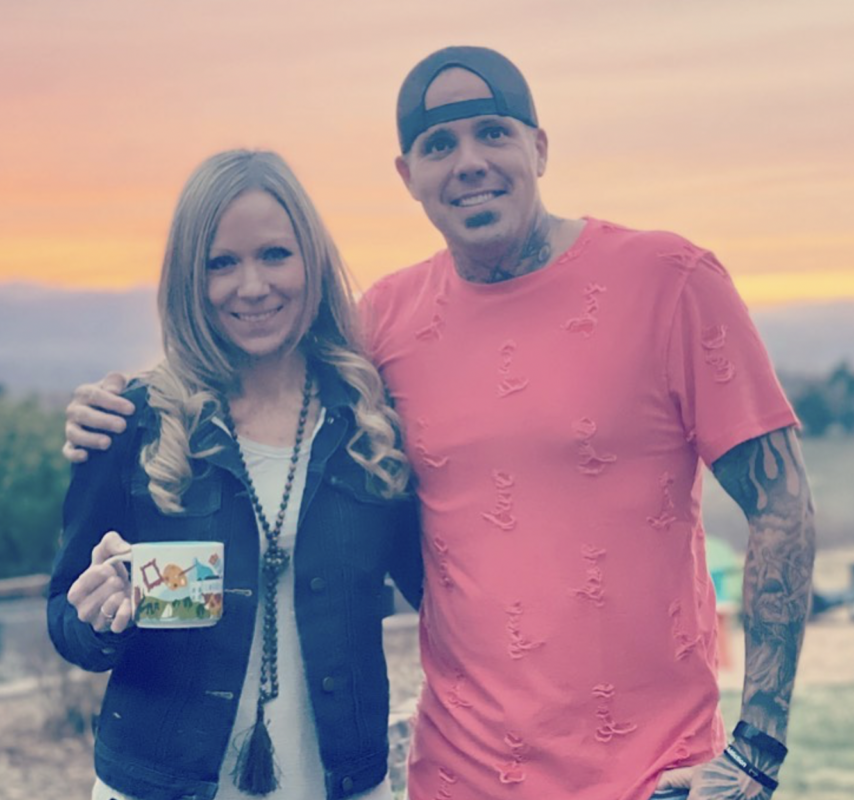
We’re especially interested in getting to know more about the mission of Wagon—”supporting women in recovery”—please tell us more about this work.
It’s no secret that we are in the midst of an addiction and mental health crisis. And the more we learn, addiction and mental health often go hand in hand. In fact, deaths from fentanyl overdoses, unfortunately, continue to rise steadily every day.
According to the Colorado Substance Abuse Report, there were over 800 fentanyl related deaths in the state in 2021, a 260% increase from 2019. Also, 100,000 overdoses happened in 2021, up from 70,000 in 2018! In 2019, 5.7 million women were reported as having an alcohol use disorder (AUD); 5% to 10% of women in the US will suffer from alcoholism sometime in their lives.
In 2023, 17% of US females used illegal drugs or misused prescription drugs within the last year.
But here is the real head trip. We can talk about data and statistics all day… but the truth is, statistics are just data with the tears wiped away. We have come to know and love many of the people that have lost their life to this disease.
When we talk about sustainability at our coffee company, it’s personal. It’s people’s lives. It’s creating space for people.
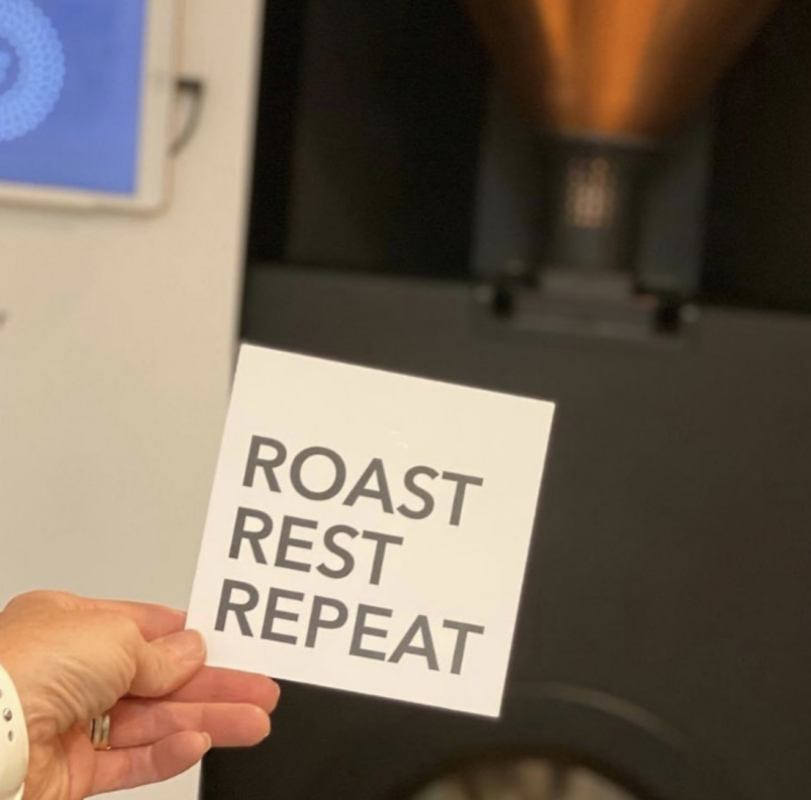
When and how did you get started roasting? Why is roasting important to your project—what does this control over the product offer your business?
I began roasting coffee on a small 8oz home roaster and selling it to our direct community under the Colorado Cottage Foods Act. I have a vast background and passion for coffee, so I thought roasting coffee would be a good way I could be of service and give back to the bottom line of our nonprofit. Plus, I felt like I had done everything else with coffee so this was a great challenge! As I was roasting, many of the women at FREE gatherings were looking for ways to contribute, and participated in things like doing the dishes, taking out trash, or scrubbing toilets as opportunities to stay sober and be of service while building a sense of belonging. People were seeing the impact, the word was spreading, our community was buying enough coffee that I had to use three home roasters to keep up with the demand!
Word continued to spread that our coffee supported recovery efforts and opportunities presented themselves that would exceed the limit for operating under the Colorado Cottage Act. Plus, running three roasters just wasn’t sustainable. I also considered that 100% of the proceeds were going back to the bottom line of our nonprofit, but they weren’t measurable in terms of impact. So, that’s when I decided our proceeds would benefit women in recovery so we could measure impact by story. I also knew that sustainability from crop to cup was equally important—farmer stories also are measurable and impactful to buyers. So, we needed a simple system where the women could show up, roast coffee without much training or oversight, and be of service. Enter the Bellwether Commercial Roaster.
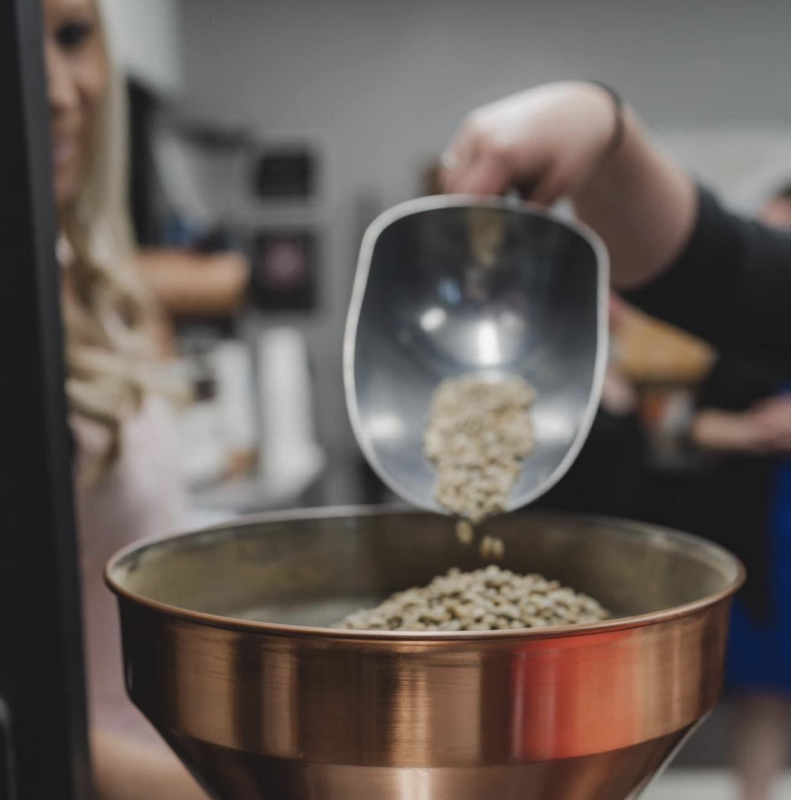
When did you start working with a Bellwether roaster? What do you like about it? Was there a learning curve? Tell us more about your experience with Bellwether.
We started roasting commercially on our Bellwether Series 1 Roaster on the day it arrived in October of 2020. No training required was key. The automated roasting cycles of the Bellwether Roaster meant I could choose a roast profile for a coffee, then train recovering women to use that roast profile under their log in over and over again—even if they had zero coffee experience.
Green coffee sourcing was simplified. I was able to maintain my existing sourcing relationships, but I could also buy coffee from Bellwether’s green coffee marketplace and use the roast profiles our in‑house experts create for each coffee to get started roasting on day one.
We increased our roasting capacity overnight, and the whole thing was plug and play. Under our old workflow I could only roast one pound every 1.5 hours. With the Bellwether we can roast six pounds in fifteen minutes. In late 2022 we upgraded to a Bellwether Series 2 roaster, which I love for its consistency, as well as for having a screen that’s built-in instead of an iPad, which we had to disconnect and stow away everyday for safe keeping.
One batch only takes a few minutes of labor each cycle, and this is especially important for Wagon Coffee. It allows our team to focus on other tasks alongside coffee roasting, including attending meetings—we actually roast in the backroom at FREE, and so 12-step meetings are offered onsite for our community.
What has been your favorite coffee origin country to roast so far? What has been the most difficult?
My favorite coffee to roast and drink are natural processed Yirgacheffe coffees from Ethiopia. Anything with cherry or berry fruit notes has always been my favorite. I love that when I roast an Ethiopian natural as a light roast that it has more blueberry forward flavor notes while a medium yields stronger strawberry flavor notes.
We are a community of recovering addicts so often we get the request for STRONG CAFFEINATED COFFEE, one that will create a sober buzz! I heard about “white coffee” so I started researching it and was up for the challenge. Our white coffee was difficult to perfect as it did not have a profile pre-built in by Bellwether, so we went through 30+lbs of coffee to perfect our product, accounting for time, temperature, and density—you need a finished coffee that is roasted just enough to be able to grind it, but still light enough to be considered “white”. Our white coffee turns out looking kind of like the color of a peanut—and it tastes like one, too!
Tell us—what does being a coffee roaster mean to you?
Roasting coffee is our medium. It’s a tool that allows us to do what we love while supporting women in recovery from addiction. We often say to folks: “This Coffee Saves Lives.” People have many great options for coffee, but our company leans in 100% on a big mission. Our operations offer a trifecta of good causes; the coffee you drink from Wagon Coffee doesn’t just help you, it helps a whole community of others, plus the environment, which helps all of us!
Thank you.
Roaster Spotlight is a feature series on Sprudge presented in partnership with Bellwether Coffee. Read more Roaster Spotlight on Sprudge.
Jordan Michelman and is a co-founder and editor at Sprudge Media Network. Read more Jordan Michelman on Sprudge.



